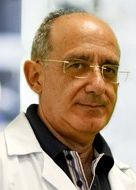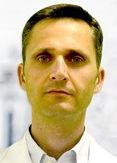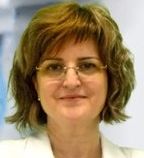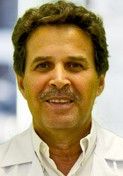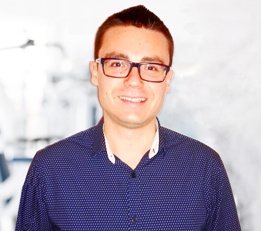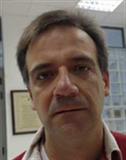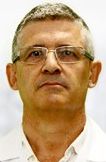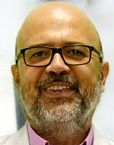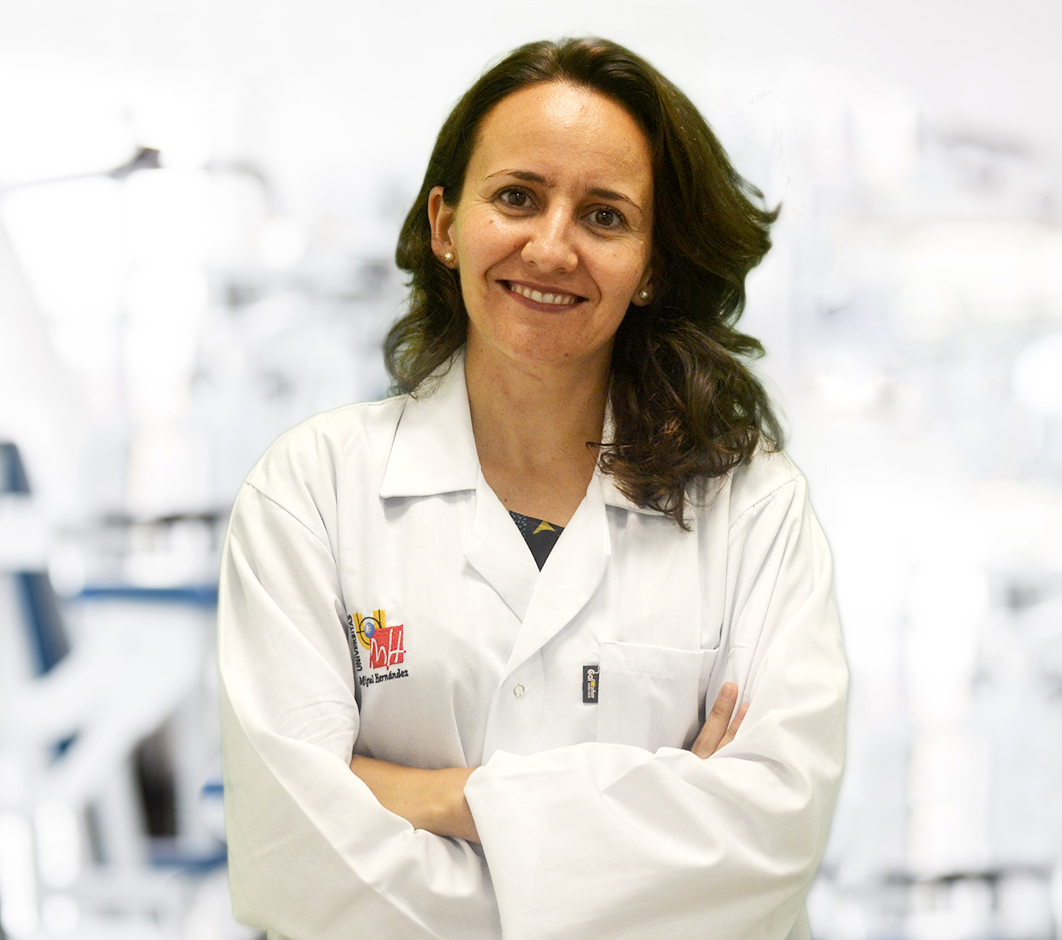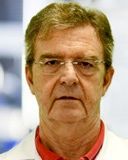University Master’s degree in Research in Clinical Medicine
It undertakes scientific career with the convenience of online training and support from expert doctors and the collaboration of the PhD Chair of Allergy
Are you our type of student?
Do you have a degree in the branch of health science; Medicine, Biochemistry, Pharmacy, Biology, Nursing, Nutrition, Psychology, Social work, Physiotherapy or Occupational Therapy?
If you have a degree in some of these areas and also want to acquire knowledge to develop research methodologies, analyze and interpret clinical research and lead your own scientific research, this is your master’s degree.
OBJECTIVES
Train professionals able to:
- demonstrate a competency that is systematic in the area of Medicine
- conceive, design, and implement a substantial research process
- contribute to extend the frontiers of knowledge through research
- perform critical analysis, evaluate and synthesize complex ideas
- know how to communicate the findings to the academic community and society health
STUDIES
The Master’s degree is composed by a total of 60 ECTS credits equivalent to an academic year. In the first semester four compulsory subjects will be studied (30 ECTS). In the second, students will choose between elective subjects to complete 12 ECTS, as well as develop the Final Master’s degree Project of with results (18 ECTS).
Common module compulsory subjects
Research Methodology I
In this course there will be an introduction of the main elements of the Research Methodology, which will be developed and completed in Research Methodology II and will be complemented in other subjects of this Master.
It will begin with the general aspects of the research, measurement conditions and traits of the populations involved in the design of the study, the definition of internal and external validity and errors that may appear in a study, as well as the key aspects will be summarized from the point of view legal and ethical force, to take into account in clinical studies. Then attend the approach to the research question that you define as the most concrete possible problem that you want to investigate in a structured way according to the formed peak. And define the scenario that you want to validate and the general and specific objectives of the research.
It is subsequently made an introduction to the design of studies and measurements of frequency and Association of impact. The definition of the set of variables which allow compliance with the established objectives and the preparation of a booklet of data (DRC) collection.
then you will be introduced to the students in a first descriptive analysis, grouping or reducing data, categorizing the variables and are then defined for confounding factors or modifiers of the effect or interaction. First is the raw data analysis in order to a stratified analysis. The main ways of presenting the results of an investigation are also described. And finally the student will learn the basic epidemiological concepts and their application to clinical practice.
- Emilio Pardo Flores
- Concepción Carratalá Munuera
- Orozco Domingo Beltrán
- Isabel Belinchón Romero
- María Victoria Moreno Cantó
- Isabel Belinchón Romero
- Maria Josñé Prieto Castello
Research Methodology II
this module develops the following areas of knowledge: design studies (special designs, clinical trials and studies of health technology assessment); election of the study population (population of) study, determination of sample size and sampling strategies); accuracy and validity of a study; analysis and management of data (preparation of theoretical and practical way to a database, analysis of the same and presentation of results), and research in health (patient safety and quality of life).
- Blanca Lumbreras Lacarra
- Lucy Anne Parker
- María Asunción Pastor Valero
- Jesus Maria Aranaz Andrés
- Isabel Belinchón Romero
- Emilio Pardo Floress
- Elsa López Pintor
- Jesus Maria Aranaz Andrés
Advanced Scientific Documentation and Practical Elaboration of a Research Project
On this subject the student will learn how to acquire information on health and disease that circulates via the internet and the tools for the retrieval of information by means of a vision critical and real and in addition it is train the student in the practical elaboration of a research project, in 10 units of advanced scientific documentation in 6 units of practical elaboration of a research project. Specifically:
- Know the main tools for information retrieval available today in health sciences: PubMed, Embase, Cochrane Library, Web of Knowledge, Scopus, etc.
- Learn about the dissemination of research results
- Know the main indicators used to assess the quality of the writing, scientific productión as well as their strengths and weaknesses
- Preparation and submission of applications for funding of projects from I+Sr
- Case study: development of a request for a hypothetical I+D project financing
- Francisco Javier Fernández Sánchez
- Blanca Juana Lumbreras Lacarra
- Enrique Perdiguero Gil
Application of Scientific Evidence to Medicine
This course provides tools for searching and critical assessment of the evidence for both therapeutic and preventive clinical decision-making.
The subject focuses on intervention studies that provide a higher quality of evidence for decision making (the randomized clinical trials and systematic reviews of randomized trials). Successive units will examine the conceptual framework of decision-making based on the evidence, the assessment of the quality of the evidence and its application to the individual patient.
at the end of the course the participant should be able to find and assess the literature suitable for taking decisions in matters of prevention or treatment in the health sciences.
- Jose Manuel Ramos Rincón
- Mariano Nicolas Andres Collado
- José Vicente Toledo Marhuenda
- Eduardo Vicente Climent Payá
- José Bañuls Roca
- Andrés Navarro Ruiz
- Maria del Mar Masia Canuto
- José María Rodríguez Ingelmo
- Eduardo Climent Grana
- Patricio Más Serrano
- Emilio Pardo Flores
- M. Rosario Sánchez Martínez
- Ana Maestre Peiró
- Pedro Llorens Soriano
- Antonio Arroyo Sebastián
- Ana Esther Sirvent Pedreño
- Isabel Belinchón Romero
- Lorena García Fernández
- Francisco Javier Pérez Contreras
- Vicente Boix Martinez
- Luis Manuel Hernández Blasco
- José Antonio López Fernández
- Victor Soriano Gomis
- Francisco Javier González De Dios
- Alberto Miñano Perez
- Ricardo Serrano García
- Guillermo Severa Ferrándiz
- Rosa Fuster Ruiz De Apodaca
- Pedro Jose Moya Forcen
- Rodrigo Joaquín Jover Martínez
- Angel Constantino Pérez Sempere
- Jaime Latour Pérez
- Maria Teresa Lozano Palencia
- Núria Padrós Flores
- Ángeles Franco López
- Manuel Romero Simo
- Esther Caparros Cayuela
- Blanca Juana Lumbreras Lacarra
- Sergio Padilla Urrea
- Joaquin Portilla Segorbe
- José Cánovas Robles
- Ernesto Cortés Castell
- Esther Teresa Fuente Marhuenda
- Eva Ausing Monrreal
- Fernando Anacleto López Prats
- Ruben Joseph Francés Guarinós
- Juan Carlos Martínez Escoriza
- Maria De Carmen Salinas La Casta
- Francisco José Quereda Seguí
- María Isabel Betlloch more
- Francisco Javier Lacueva Gómez
- Jorge Luciano Alió
- Pascual Marco Vera
- Maria Isabel Acién Sánchez
- Vicente Bertomeu González
- Maria De Mar Blanes Martínez
- Luis Gómez Pérez
- Miguel Ahumada Pérez
Lines of Specialty electives
Chosing 12 ECTS credits out of 30 offered.
Clinical Trials and Clinical Research
The student will learn the role of clinical trials clinical research, the different types of clinical trials and their validity in scientific evidence, legal aspects and bioethical research in clinical trials and of the pharmacist in the clinical trial. All of this is divided into five units didactica:
- Role of the clinical research clinical trials
- Characteristics of clinical trials
- Legal aspects and bioethical research in clinical trials
- Description and a clinical trial process
- Management of drugs in clinical research
Second semester 4.5 ECTS theory | 0 practice ECTS
- María de Mar Masia Canuto
- Isabel Belinchón Romero
- José Manuel Ramos Rincón
- Félix Gutiérrez Rodero
Research in Clinical Management
This course aims to provide students with the skills to conduct research in the field of planning, coordination and improvement of health services. The course is addressed to professionals with responsibility or interest in the management of centres and health services, including clinical managers (heads of service or section hospital, primary care coordinators).
the focus of the course is divided into two modules. The first module is a conceptual type, provides the keys to design and evaluate research in the field of clinical management. The second module is practical, the student proposes the design of research in clinical management in your environment to apply the theoretical knowledge acquired.
- Emilio Pardo Flores
- Jose Joaquin Uris Sellas
- Isabel Belinchón Romero
- Francisco Javier Fernández Sánchez
Methodology of Qualitative Research in Health Science
Qualitative methodology. Designs and phases of qualitative research. Analysis of qualitative data, of the general considerations to the procedures. Quality of qualitative research. Focus groups as a research technique: design and applicability. Action research and its applicability in the health sciences. Gender and health. How to prepare a protocol for research in qualitative research. Computer tools and other resources of interest to qualitative research.
- Concepción Carratalá Munuera
- Antonio Palazón Bru
- Orozco Domingo Beltrán
- Isabel Belinchón Romero
In vivo and in vitro Techniques in Clinical Research
In this subject students to be trained to understand and manage clinical and biological data that provides a basic, or clinical laboratory as well as its variability, sensitivity and specificity.
The theoretical content is presented in two units, and pilots will require making a stay of 35 hours (1 week) in a basic or clinical laboratory learning one or more techniques, on which is written a recension.
Unit 1. Reliability and validity of data from research on laboratory – laboratory reproducibility, reliability – evaluation of the methodology in research on diagnostic laboratory tests
Unit 2. In the research lab. – Clinical tests in vivo and in vitro in allergy and Clinical Immunology – tools of Immunology and molecular biology applied to clinical research – concept of Antigen-antibody interaction, enzyme immuno-analysis, espectro-electroforesis, arrays, genome sequencing, etc.
Unit 3. Practice in laboratory research purposes – The student will have to make a stay of 35 hours in a laboratory clinical or Basic, understanding the basic research methodology. It can be a laboratory for Allergy, Clinical Biochemistry, Immunology, Microbiology, Hematology or Molecular, accredited research for research at any centre or hospital of Spain, and that access to the stay of the student. -For the realization of the stay will be held timely contacts with the centers closer to the students for the development of this.
- Francisco Javier Fernández Sánchez
- Víctor Soriano Gomis
- Emilio Pardo Flores
Writing and Publishing a Scientific Article
Systematic Reviews and Meta-Analysis
Systematic reviews are an essential piece in the process of translating scientific knowledge into clinical practice. The subject is addressed both to (clinical investigators or not) users who use reviews to put a day like the researchers who are new to the realization of a systematic review. Approach it is eminently conceptual, and tries to provide the keys to critically evaluate and perform a systematic review and meta-analysis with a minimum of Mathematical notations.
- Jose Manuel Ramos Rincón
- Emilio Pardo Flores
- Isabel Belinchón Romero
- Eva de Migiel Balsa
- Maria Teresa Sempere Selva
Scientific Method in Clinical Decision Making
in this course the student will be you trained for clinical decision making, know the efficacy, effectiveness and efficiency of preventive activities in therapeutic interventions. Also shown to understand the importance of the synthesis of the results of the investigation, with five teaching units.
- Methodology in clinical decision-making. Clinical practice guidelines. Levels of scientific evidence
- Efficacy, effectiveness and efficiency of preventive activities
- Complementary tests in clinical diagnosis. Indicators of validity and utility
- Efficiency, effectiveness and efficiency of therapeutic interventions
- Synthesis of results: meto-analysis, systematic and journal reviews of synthesis
- Domingo Orozco Beltrán
- Concepción Carratalá Munuera
- Emilio Pardo Flores
- Vicente Francisco Gil Guillén
Communication Techniques and Web Tools in Research
This course aims to teach the student to understand the dynamics of the oral presentation of scientific work, analyze public objectives, circumstances and interests as listeners, structuring discourse in function in these circumstances, acquire skills and communication resources in the service of the efficacy of speech.
On the other hand, is to know the student and I use tools available on the web for use in research. Among others they work with collaborative documents, forums, calendars, video-conferencing, video-conferences, blogs and networks social professions to access and share information.
- Jose Manuel Ramos Rincón
- Emilio Pardo Flores
- María Asunción Martínez Mayoral
- Carlos Javier Van-Der Hofstadt Roman
Final Master's Degree Project
The Department of Clinical Medicine will be defined at the time of the call of the Master’s degree possible lines and projects that can be developed on a voluntary basis by students enrolled in the Master’s degree.
-
- Fco. Javier Fernández Sánchez
- Mariano Nicolas Andres Collado
- José Vicente Toledo Marhuenda
- Vicente Eduardo Climent Payá
- José Bañuls Roca
- Andres Navarro Ruiz
- Pascual Fernández Abellan
- Maria De Mar Masiá Cannuto
- José María Rodríguez Ingelmo
- Eduardo Climent Grana
- Patricio Más Serrano
- Emilio Flores Pardo
- M. Rosario Sánchez Marínez
- Ana Maestre Peiró
- Pedro Llorens Soriano
- Antonio Arroyo Sebastián
- Ana Esther Sirvent Pedreño
- María Isabel Pérez Soto
- Isabel Belinchón Romero
- Lorena García Fernández
- José Manuel Ramos Rincón
- Luis Manuel Hernández Blasco
- Jose Antonio López Fernández
- Victor Soriano Gomis
- Francisco Javier Gonzalez De Dios
- Alberto Miñano Pérez
- Ricardo Serrano García
- Guillermo Severa Ferrándiz
- Rosa Fuster Ruiz De Apodaca
- Paloma Vela Casasempere
- Antonio Palazón Bru
- Pedro José Moya Forcen
- Rodrigo Joaquín Jover Martínez
- Angel Constantino Pérez Sempere
- Jaime Latour Pérez
- Sergio Ortiz Sebastián
- María Teresa Lozano Palencia
- Nuria Padrós Flores
- Ángeles Franco López
- Blanca Juana Lumbreras Lacarra
- Carlos de la Sen Fernández
- Félix Gutiérrez Rodero
- Joaquín Portilla Segorbe
- José Cánovas Robles
- Ernesto Cortés Castell
- Antonio Miguel Picó Alfonso
- Esther Teresa Fuente Marhuenda
- Eva Ausó Monrreal
- Fernando Anacleto López Prats
- Ruben José Frances Guarinos
- Juan Carlos Martínez Escoriza
- Maria De Carmen Salinas La Casta
- Francisco José Quereda Seguí
- Francisco Javier Lacueva Gómez
- María De los Reyes Pascual Pérez
- Jorge Luciano Alió Sanz
- Mercedes Juste Ruiz
- Pascual Marco Vera
- Maria Isabel Acién Sánchez
- Vicente Bertomeu González
- Maria De Mar Blanes Martínez
- Luis Gómez Pérez
- Miguel Ahumada Pérez
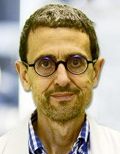
RESPONSABLES ASIGNATURAS
OTROS DOCENTES

CONTACT
Director of the University Master’s Degree in Research in Clinical Medicine
Dr. José Manuel Ramos Rincón
Deputy Director of the University Master’s Degree in Research in Clinical Medicine
Department of Clinical Medicine

